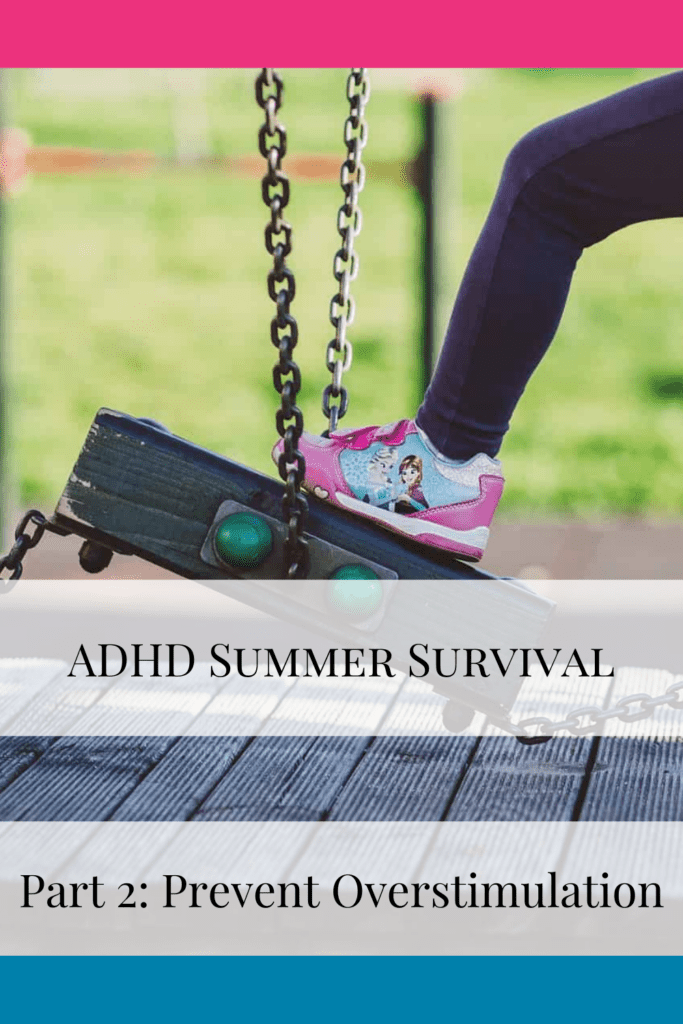In my last post I talked about my top three tips to make summer a success for kids with ADHD and ASD the main aspect of that is creating structure and routine.
The other area that needs to be addressed is why kids can become more overstimulated or have more challenging behaviours in the summer and what you can do to avoid that.
1.Eating: Keep it Clean – Parents often noticed their child with ADHD is particularly sensitive to foods high in sugar, food colouring and other preservatives. Parents are often astounded at the difference in behaviour once they eliminate these foods and are even more convinced once they add it back in and their child turns into a Tasmanian devil. Not only does food colouring and sugar spell disaster in terms of behaviour for kids with ADHD it is super addictive. See my article series on the effects of sugar and sugar addiction.
Like winter holidays, summer can be a nightmare when trying to maintain a healthy diet for both kids and adults alike. Ice cream stands, barbecues with hot dogs followed by popsicles and all those other goodies can feel impossible to resist. What I tell clients is to try to eat as healthy as possible at home and save the treats for outings. However, don’t allow outings to become an opportunity to sabotage all of your efforts. Try to avoid having treats at every outing and make the healthier choice when possible.
Beyond simply limiting sugar, ensure your child has a diet rich in protein and healthy fats, preferably protein at each meal as well as snack time to keep blood sugar levels stable. Protein rich breakfasts can set kids up for success like nothing else. When blood sugar is constantly fluctuating so too does mood, tempers and behaviour.
2.Screen Time Boundaries – It’s easy to let kids get sucked into too much screen time if you don’t have a routine. Nothing hypnotizes kids more than screen time and while it can be enticing to have hours of time when your child is quiet and engaged, the after effects are often not worth it.
Screen time has been shown to increase irritability, as well as contribute to the symptoms of ADHD. The more time that children and adults spend on screens the shorter their attention span, memory as well as their ability to stay interested in other activities.
Keep in mind that screen time is less the problem and unlimited screen time is the actual problem. The more kids understand that they get 30 or 60 minutes of screen time a day and that it is a non-negotiable, the less they will fight you on it. Stick to your guns. Setting a timer with a five minute warning will help to eliminate meltdowns and arguments. The more that they are doing real-life activities and the more fun they have doing those the less likely they will be drawn to screen-time.
3.Play Dates – Play dates with friends is important for these kids especially if they have difficulties socially or with making friends. It creates the opportunity for free-play while also maintaining that structure and gives kids something to look forward to. Playdates also have the added benefit of showing kids who might not be natural planners that planning ahead can actually be positive when it means ensuring that something fun is going to take place.
4.Responsibility: More Fun than You Think – Kids not only need responsibilities to teach them work ethic but also because it gives them a sense of purpose and meaning despite that they likely do not realise it.
This is the reason why studies have found that kids are much less likely to get into recreational drug-use if they have responsibilities, chores and feel they play an important role in contributing to the stability of the family. Certainly, you want your child to have fun, but don’t view chores as a punishment. This is why summer camp for younger kids and a summer job for older kids can be so beneficial. Summer camp is loads of fun with plenty of structure, but it also has plenty of chores and duties.
The key to make summer a pleasant experience for both a child with ADHD and yourself is to create predictability and structure around the fun. Do not allow an activity to last too long where kids are bored with the activity and start seeking stimulation and getting into trouble.
To learn more about how you can help your child move beyond their struggles and limitations and soar to their full potential, contact me for a free twenty-minute Better Brain Breakthrough Session.


